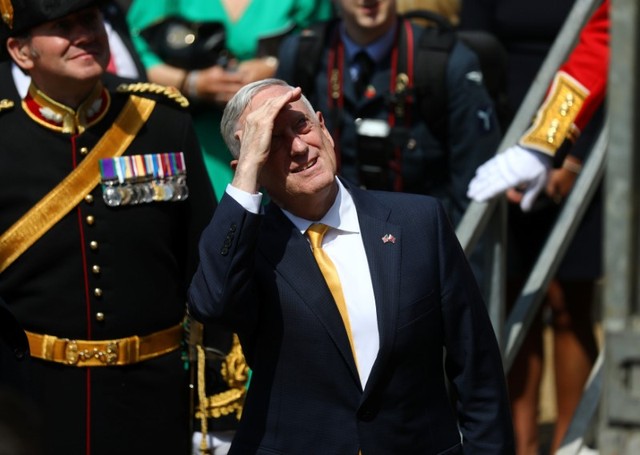TOKYO (Reuters) – U.S. Defense Secretary Jim Mattis offered solidarity with Japan on Friday over Japanese abductees being held in North Korea as he sat down for talks in Tokyo focusing on negotiations to denuclearise Pyongyang.
Mattis, who is on the last stop of a trip to Asia that also included stops in China and South Korea, noted that Japanese Defence Minister Itsunori Onodera was wearing a lapel pin worn in remembrance of the Japanese abducted by North Korea to train its spies.
“I note with respect the blue lapel pin you wear, and we’re with you,” Mattis said, as he sat down with Onodera for talks at the defence ministry in Tokyo.
Japan has been pressing the United States to make the issue of the abductees a priority in its talks with North Korea. U.S. Ambassador William Hagerty hosted family members of Japanese abductees at his residence in Tokyo in April and regularly wears the pin.
Japan, which may seek direct talks with North Korea to discuss the return of any remaining abductees kidnapped during the 1970s and 1980s, has said it will not provide any economic aid to Pyongyang until the issue is resolved and normal diplomatic relations have been established.
Onodera said he and Mattis would be discussing North Korea.
Mattis’s visit to Japan comes after President Donald Trump said the U.S. will halt large scale military drills with neighbouring South Korea during denuclearisation talks with North Korea.
On Thursday in Seoul Mattis defended Trump’s decision to halt “war games,” saying it would help diplomats negotiate, but assured the South Korean government of an “ironclad” commitment to its security, including keeping U.S. troop levels there of around 28,500 soldiers.
Mattis described his talks with officials while in China as “very, very” good.
Japan, which hosts some 50,000 U.S. military personnel, including the biggest overseas concentration of U.S. Marines and a U.S. Navy carrier strike group, relies on the Washington for its defence and operates closely with its military.




